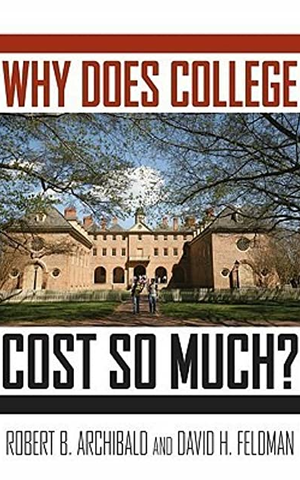
Why Does College Cost So Much?
- Book
- Oct 20, 2010
- #Education #Economics
Much of what is written about colleges and universities ties rapidly rising tuition to dysfunctional behavior in the academy. Common targets of dysfunction include prestige games am...
Show More
Number of Pages: 289
ISBN: 0199744505
ISBN-13: 9780199744503
Mentions
See All
Bill Gates @BillGates
·
Dec 12, 2013
- Curated in The best books I read in 2013
The title is a question that seems to get more attention every year. The authors are good about not pointing fingers but instead talking about how America’s labor market affects the cost of college. My view is that as long as there’s a scarcity of college graduates, a college degree will be quite valuable. So people will pay more to get one. And if they will pay more, then colleges and universities—whose labor is provided mostly by people who paid a lot for their own degrees—can ask for more. Until you get an excess supply of graduates, then you don’t really get any price competition.
What’s the answer? Archibald and Feldman lay out a number of policies that could help. I also think technology can help control costs by improving distance learning. Colleges and universities can also do a lot to root out inefficiencies and duplication. (How many physics courses should be taught in, say, Chicago? Could some be consolidated?) This book is a useful introduction to a complex problem.
Chris Dixon @cdixon
·
Jun 30, 2013
excellent book on root cause of problem